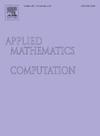空间公共产品博弈中内生惩罚下的合作
IF 3.5
2区 数学
Q1 MATHEMATICS, APPLIED
引用次数: 0
摘要
惩罚和网络互惠对合作的演化有着深远的影响。然而,现有关于社会网络中惩罚下的合作后果的研究大多依赖于基于代理的模型和实验室实验。此外,与大多数现有研究总是认为惩罚是确定性的不同,个体对某些行为的偏好总是随机的,并随着环境的变化而变化。当社会网络中的惩罚具有随机性和内生性时,合作是如何演变的亟待探索。本文提出了空间公共物品博弈中内生惩罚的理论模型。每个合作者都可以随机选择是否参与对叛逃者的惩罚。选择惩罚叛逃者是有代价的。是否惩罚叛逃者以及如何惩罚叛逃者由合作者对执行代价高昂的惩罚的偏好内生决定。我们以均值场极限中的规则网络为基础,分析了内生惩罚下的合作如何演化,并概述了内生惩罚支持合作的条件。当网络互惠不利于合作时,内生惩罚可以有效地支持合作。相反,内生惩罚不再支持甚至阻碍网络互惠对合作的促进作用。这些发现说明,内生惩罚在促进合作方面的有效性取决于合作者是否愿意为惩罚付出代价以及社会网络的拓扑结构。本文章由计算机程序翻译,如有差异,请以英文原文为准。
Cooperation under endogenous punishment in the spatial public goods game
Punishment and network reciprocity have profound implications for the evolution of cooperation. However, existing research on the consequences of cooperation under punishment in social networks has largely relied on agent-based models and laboratory experiments. Moreover, different from the majority of existing studies where punishment is always believed to be deterministic, the individuals' preferences for certain behaviors are always stochastic and vary with the environment. There is an urgent need to explore how cooperation evolves when punishment is stochastic and endogenous in social networks. In this paper, we propose a theoretical model of endogenous punishment in spatial public goods games. Cooperators each can stochastically choose whether to participate in the punishment for defectors. The choice to penalize defectors comes with a price. Whether and how defectors are punished is endogenously determined by the cooperators' preferences for executing the costly punishment. We analyze how cooperation evolves under endogenous punishment based on a regular network in the mean-field limit and outline the conditions under which endogenous punishment can support cooperation. When network reciprocity is unfavorable for cooperation, endogenous punishment can be effective in supporting cooperation. On the contrary, endogenous punishment no longer supports or even hinders the promoting effect of network reciprocity on cooperation. These findings illustrate that the effectiveness of endogenous punishment in fostering cooperation is dependent on the cooperators' willingness to pay for punishment as well as the topology of social networks.
求助全文
通过发布文献求助,成功后即可免费获取论文全文。
去求助
来源期刊
CiteScore
7.90
自引率
10.00%
发文量
755
审稿时长
36 days
期刊介绍:
Applied Mathematics and Computation addresses work at the interface between applied mathematics, numerical computation, and applications of systems – oriented ideas to the physical, biological, social, and behavioral sciences, and emphasizes papers of a computational nature focusing on new algorithms, their analysis and numerical results.
In addition to presenting research papers, Applied Mathematics and Computation publishes review articles and single–topics issues.

 求助内容:
求助内容: 应助结果提醒方式:
应助结果提醒方式:


